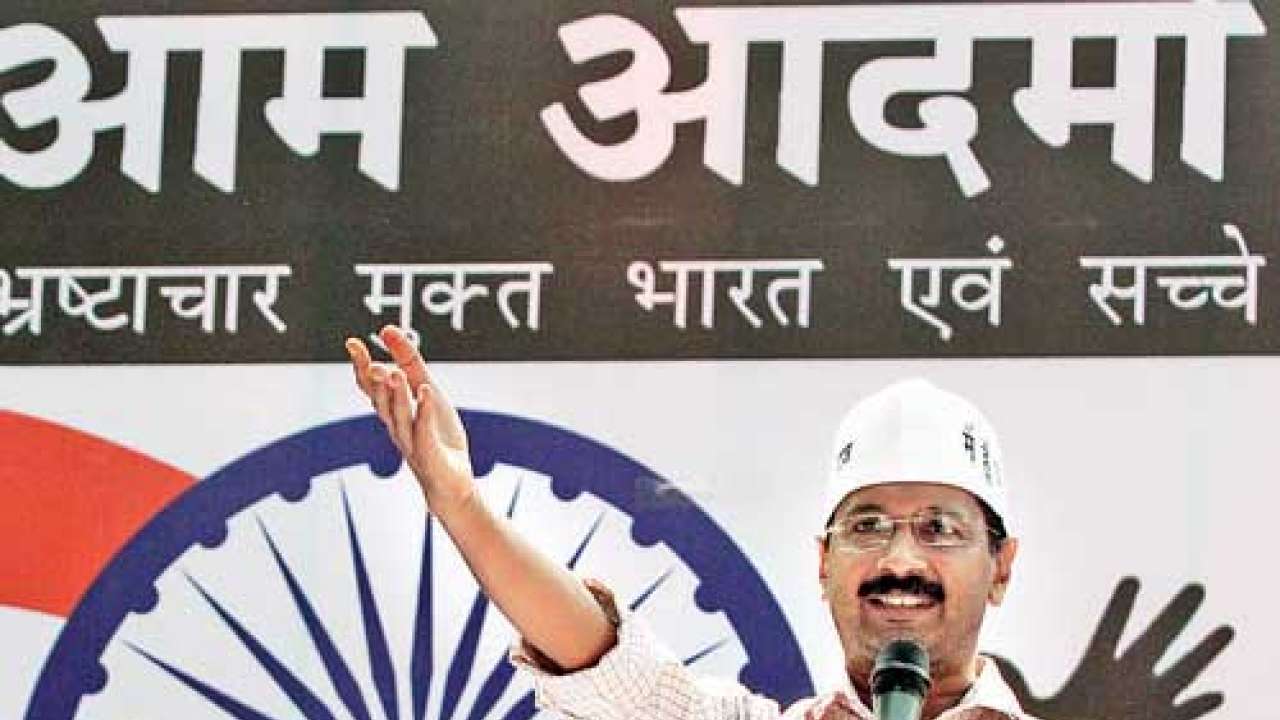
Who would have thought that the bespectacled, mild-mannered, boyish looking Arvind Kejriwal is going to give the two domineering national parties such a scare in the imminent contest for Delhi? Not so long ago, such a reckless suggestion would surely have been met with laconic condescension even acidic contempt from Congress and BJP heavyweights. At the height of the Anna Hazare-led anti-corruption upsurge two years ago, these politicians, ensconced in their risk-free comfort zones, had one crisp message for the street protestors: Fight us, if you will but only in the electoral battlefield. ‘The tyranny of the unelected’, they fumed. As if elections were the only means of acquiring political legitimacy. All other protests, by this reckoning, deserved derision unless they acquired a momentum threatening to upset the electoral applecart of the ‘elected.’
Little did these haughty politicians anticipate Kejriwal taking them up on their seemingly impossible challenge. Or that their words would come back to haunt them. By underestimating Kejriwal, the political class, to its own peril, has set into motion a process of allowing voters the luxury of re-imagining politics this time on the politicians’ own turf: elections.
Kejriwal, even his most trenchant critic would concede, is a ‘smart’ man daring enough to push the boundaries and enter a domain marked by muscle power and money. The political parties never seriously believed that Kejriwal and his rag-tag band of comrades would cobble together a party structure even less get it to work.
Perhaps, it was this shameless derision of civil society organisations (never mind that the Congress president Sonia Gandhi herself presided over the most powerful of them) that did the trick. Arvind Kejriwal broke ranks with the octogenarian Gandhian crusader and formed the Aam Aadmi Party (AAP). If poll predictions are to be believed, the AAP is now moving towards a stunning electoral debut; that too in the capital, where durbari politics is played out with its full machinations.
Could this be the beginning of an alternative political culture? But then remember that once hallowed description of the CPI-M: Party with a difference. Not any more. As we have experienced through the cycle of optimism alternating with pessimism, there’s something rotten in the system itself. Kejriwal is brave enough to cross the threshold of non-electoral politics and enter this ‘hall of disgrace’. He has vowed to dispel the rampant cynicism about politics and politicians. ‘Make politics with a difference’. Recall the other slogan ‘globalisation with a human face’? Riddled with the intrinsic contradictions of capitalism/globalisation, that slogan has, till date, remained impossible to achieve.
Conventional politics todays stands discredited on every count. Not a day goes by without politicians defending riots, scams, nurturing legislators charged with crimes, even rape and murder. Like ‘globalisation with a human face’ rankles in the midst of massive human dislocation and inequalities, so does ‘politics with a difference’. Is that cynicism beyond redemption?
Apparently not. It’s the very dissonance of such a slogan that’s feeding into it’s seductive charm.
For those willing to dream on, these days young AAP volunteers, donning the trademark party cap, are knocking on doors, drawing people into conversations about politics. The AAP’s donations however meagre are scrupulously put up on the website. NRIs, across the world, are beefing the party coffers. Idealism underlies the genesis of the AAP which brings us to the essentials of this debate around the form and content of politics itself.
Is all politics a politics of hard, manipulative statecraft? Is all politics meant to be nothing but the means to an end that end being elections? Expressing disapproval of even disgust with our political leaders, pointing fingers at the institution of Parliament and those representing it, signifies healthy irreverence. Unfortunately, like everything else, “politics” too, is an ideology. Just as expressing lack of faith in the correct ideology provokes indignant rebuttals among Left and Right-leaning sections, condemning the political class sparks disapproving looks among those dedicated to protecting the status quo. The earnest endorsers of the political class believe they are defending the very existence of politics.
What is forgotten in such earnestness is that electoral or party politics is just one fragment of the complex universe of politics; substantial yes, but not the whole of it. If politics is about power relations then electoral politics represents one of its innumerable aspects. Those who treat the political class as Holy Cows seem to think that the only legitimate politics is electoral or bound by party structures. Like the desire for a correct ideology, this fixed notion of what legitimate politics is, has done immense harm to both politics and its practitioners.
In fact, we might do well to realise that historically, ‘elections’ and ‘democracy’ have meant very different things. According to scholar and activist David Graeber: “In all previous European history, elections had been considered as Aristotle had originally insisted the quintessentially aristocratic mode of selecting public officials.” In the electoral system voters had to select from among a number of “professional politicians” who claimed to know more than the public that elected them. By contrast, as Graeber writes, “The democratic approach employed widely in the ancient world, but also in Renaissance cities like Florence was lottery, or, as it is sometimes called, ‘sortition.’ Essentially, the procedure was to take the names of anyone in the community willing to hold public office, and then, after screening for basic competence, choose their names at random. This ensured all competent and interested parties had an equal chance of holding public office.” Is it possible that the entry of players like Arvind Kejriwal reintroduces the possibility of lottery and chance to our stale electoral routines?
The author is Editor, dna of thought